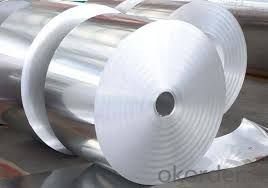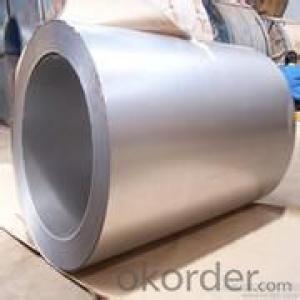excellent cold rolled steel Coil / Sheet -SPCE
- Loading Port:
- China main port
- Payment Terms:
- TT OR LC
- Min Order Qty:
- 30 m.t.
- Supply Capability:
- 5000000 m.t./month
OKorder Service Pledge
OKorder Financial Service
You Might Also Like
Specification:
Thickness: 0.4-2.0mm
2. Width: 900-1250mm
3. Inner Diameter: 508mm
4. Weight of Steel Coil: 3-15MT
5. Heat Treatment: Annealed
6. Margin Status: EC & EM
7. Surface Quality: FB&FC
8. Surface Status: SB & SD
9. Surface Treatment: Oiling
Main Features:
1. Commercial quality suitable for bending fabrication and simple forming; this is the type in greatest demand.
2. Drawing quality second only to that of SPCEN. Excellent uniformity.
3. Deep-drawing quality.With metallurgically controlled grain size, it retains its beautiful finish even after being deep-drawn.
4. Extra-low-carbon steel sheets with highest workability
Application:
1. Refrigerators, cabinets, power distribution baords and drums.
2. Automobile floor and roof panels.
3. Automobile fenders and quarter panels
4. Automobile fenders and quarter panels
Images:

Quality of the goods could be guaranteed. The finished product has a variety of excellent capabilities, such as continuous rolling, degreasing, annealing, skin pass, slitting and cut to length line etc. Along with it many rocessing capability and smooth, flat surface. It’s widely used in outdoor and interior decoration, furnishing
- Q:How are steel coils transported internationally?
- Typically, steel coils are shipped internationally by sea due to their heavy and bulky nature, which makes air transportation impractical. The most common method involves using specialized shipping containers called flatracks or open-top containers, which allow for easy loading and unloading onto vessels. Before being transported, the steel coils are typically securely strapped or banded together to prevent movement or damage during transit. Cranes or forklifts are then used to load the coils onto the flatracks or open-top containers. Careful placement and securing of the coils onto the containers ensure stability and prevent shifting during the journey. Once loaded, the containers are sealed and taken to the nearest port, where they are loaded onto cargo ships designed specifically for heavy and oversized cargo. These ships are equipped with specialized handling equipment like cranes and ramps to facilitate container handling. During the journey, the cargo ships adhere to predetermined shipping routes to reach the destination port. The duration of the journey depends on the distance between the origin and destination ports. Since steel coils are typically transported in large quantities, multiple containers may be loaded onto a single ship. Upon arrival at the destination port, cranes or ramps are used to unload the containers from the cargo ship. The steel coils are then carefully removed from the containers and transported to their final destination, which may involve further transportation by road or rail. Throughout the transportation process, it is crucial to adequately protect the steel coils from moisture, corrosion, and other potential damages. Special attention is given to handling and stowage to minimize the risk of structural damage or deformation. In conclusion, specialized shipping containers are utilized to transport steel coils internationally by sea. The coils are securely loaded onto flatracks or open-top containers and transported by cargo ships to the destination port. Proper handling and stowage techniques are employed to ensure the safe and secure transportation of the steel coils.
- Q:I have a new stainless steel trash compactor under a butcher block counter. We refinished the countertop, but unfortunately the person who did it wasn't careful with the orbital sander and sanded the top edge of the stainless steel compactor door, ruining the finish. The sander marks are not deep - just surface scratches - but they are unsightly. Is there any way to restore the finish to the stainless steel without having to buy a new door?
- How To Refinish Stainless Steel
- Q:How are steel coils used in the production of household appliances?
- Steel coils are used in the production of household appliances as the primary material for manufacturing various components, such as the outer body, frames, and structural parts. The coils are first shaped, cut, and formed into specific sizes and shapes, depending on the appliance being produced. These steel components provide strength, durability, and stability to the appliances, ensuring longevity and resistance to wear and tear.
- Q:How are steel coils used in the manufacturing of industrial compressors?
- Steel coils are used in the manufacturing of industrial compressors as they are shaped and formed into various components of the compressor, such as the casing, cylinder, and piston. The steel coils provide strength, durability, and stability to these components, allowing the compressor to withstand high pressure and perform efficiently in industrial applications.
- Q:What are the different types of steel coatings used on coils?
- There are several types of steel coatings used on coils, including galvanized coatings, zinc-nickel coatings, aluminum-zinc coatings, and organic coatings.
- Q:Can steel coils be used in the production of packaging materials?
- Yes, steel coils can be used in the production of packaging materials. Steel coils are often used as the core material for packaging materials such as metal strapping and steel banding. These coils are strong, durable, and provide excellent tensile strength, making them ideal for securing and protecting various products during transportation and storage. Additionally, steel coils can be easily shaped and formed into different packaging components, ensuring a secure and reliable packaging solution for a wide range of industries.
- Q:so why shouldn't one use a steel cased 223 in an ar15?
- Because some people ***** and moan about how the lacquer or polymer gums up the chamber causing torn case rims. But they don't clean there guns anyway so there point is irrelevant. Some say it wears out your extractor faster which is also bullshit. The steel casings are a milder bi-metal. Really its people complaining for the sake of complaining.
- Q:Can steel coils be used in marine environments?
- Yes, steel coils can be used in marine environments. However, it is essential to ensure that the steel coils are properly protected against corrosion, as the saltwater and high humidity in marine environments can accelerate the process of rusting. Various coatings and treatments can be applied to steel coils to enhance their resistance to corrosion and make them suitable for use in marine applications.
- Q:What is the role of steel coils in the production of pipes and tubes?
- Steel coils are an essential component in the production of pipes and tubes as they serve as the raw material for manufacturing. The coils are unwound and then shaped into the desired pipe or tube form through various processes such as rolling, bending, and welding. The steel coils provide the necessary strength, durability, and structural integrity required for the pipes and tubes to withstand high pressures, extreme temperatures, and other demanding conditions.
- Q:I bought my Gerber Scout for 29 bucks at the local Walmart a couple months ago, and so far it's performed better than any of my previous knives (a couple of low quality Bucks, and a Winchester). However, my friend just bought a 50 dollar Buck knife and I absolutely love it, so I'm debating trading mine in and pitching in a bit of cash for the same kind.What troubles me is the fact that everybody seems to be bashing 440A steel. I hear a lot of bad things about it; how it is soft, chips easy, dull quickly, etc. How bad is 440A steel really, and would it be worth trading in my Gerber plus about 30 cash for a Buck Vantage Pro? Apparently the Vantage Pro uses S30V steel, so is it really that big of an upgrade, from 440A to S30V? Thank you.
- 440 steel is fine for most knives, but there are better quality steels out there for specialized uses. If you like the knife you have, don't worry about what other people say. If you like the new knife more, trade for it. Sometimes I question why people have to ask so many questions about what's better than what.
1. Manufacturer Overview |
|
|---|---|
| Location | |
| Year Established | |
| Annual Output Value | |
| Main Markets | |
| Company Certifications | |
2. Manufacturer Certificates |
|
|---|---|
| a) Certification Name | |
| Range | |
| Reference | |
| Validity Period | |
3. Manufacturer Capability |
|
|---|---|
| a)Trade Capacity | |
| Nearest Port | |
| Export Percentage | |
| No.of Employees in Trade Department | |
| Language Spoken: | |
| b)Factory Information | |
| Factory Size: | |
| No. of Production Lines | |
| Contract Manufacturing | |
| Product Price Range | |
Send your message to us
excellent cold rolled steel Coil / Sheet -SPCE
- Loading Port:
- China main port
- Payment Terms:
- TT OR LC
- Min Order Qty:
- 30 m.t.
- Supply Capability:
- 5000000 m.t./month
OKorder Service Pledge
OKorder Financial Service
Similar products
New products
Hot products
Related keywords































